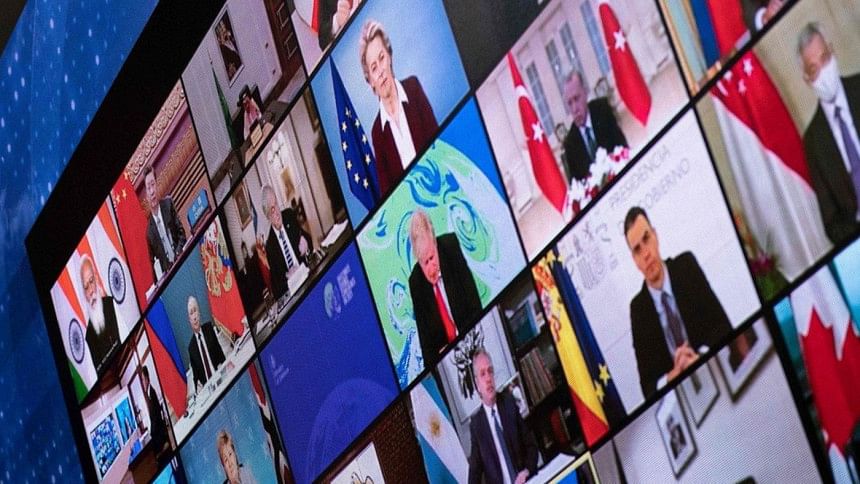Climate change communication is a prerequisite for climate mitigation

CITIZENS' understanding about the causes of climate change and its consequences is vital for its mitigation. For that, communicating the relevant issues to the masses is a prerequisite. However, this has always been an issue in the circles of hard science and policy-making. There is a lack of planned initiatives by local and global stakeholders to make climate change knowledge understandable to the general public by using the mass media—with a few exceptions. On the other hand, the high-level summits including Conference of the Parties (COPs) have never been easy for citizens to directly access—except for the myopic media coverage of the events from the top. The recent youth climate actions taken mainly by students from around the world following Greta Thunberg's "climate emergency call" is an inspiring one for creating public awareness. These actions have been guided by grassroots organisations and civil societies in Bangladesh. However, they have largely been missing in the mainstream media coverage.
Though the Intergovernmental Panel on Climate Change (IPCC) has been saying for a long time that climate change is true and real and is largely caused by human activity, thus anthropogenic in nature, the international community took a long time to come to the consensus that climate change is an existential threat to human civilisation. Many debates took place since the Bali conference and finally the international community reached the Paris Agreement in 2015 with some definite goals and objectives. That created a global hope for action. However, when the Trump administration left the Paris Agreement, the hope for collective action for emission reduction, mitigation, adaption and technology transfer disappeared once again. Having the USA on board and its leadership for climate action is enormously important for achieving the targets. It is expected to contribute to the annual USD 100 billion climate funds for the low emitting climate victim nations—because of its past emissions leading to climate change. So, there are many science-related issues, as well as historical and international policy related issues that form our common climate problems. However, most people are unaware of them.
It is encouraging to see the Biden administration take visible initiatives by bringing the USA back on the table and in a leadership position for worldwide climate actions. The April 2-3 virtual climate summit led by the Biden administration was organised to find how the USA can work together with the world community to achieve the climate related common goals. Despite the Covid pandemic, Joe Biden's special envoy on climate change set out on an international tour to invite potential leaders to the virtual summit and he also met our prime minister to personally hand her an invitation. That showed the seriousness of the current US administration to climate change issues and their undercurrents. Appointing a special envoy and organising this summit in the first 100 days of coming into office made the global public hopeful of future climate actions. As reported in the virtual summit, world leaders also raised their targets in country specific voluntary emission reduction, being inspired by Biden's initiative. Along with future emission reduction targets, some leaders have talked about public behavioural issues that require more rigorous, planned public communication actions.
China's leader Xi Jinping emphasised on the harmony of nature with development activities. This is particularly important while the world community is pursuing the Agenda 2030 for sustainable development. On the other hand, Narendra Modi, the Indian Prime Minister, emphasised on the lifestyle of Indians which he considers as climate friendly and called for a lifestyle change in order to fix the climate change problem. However, these issues cannot be achieved by the respective government or by adopting international policy actions imposed from the top. They need to be communicated to the public and their participation is a prerequisite for behavioural change in lifestyle and changing attitude towards nature for harmonising the coexistence of species, nature and culture, leading to sustainable development.
Media is largely considered an effective vehicle for communicating climate issues to the mass public. However, there are many problems in mediated communication on climate change. Firstly, most of the media, due to their focus on the political economy or for some other reasons, do not realise the urgency and necessity of addressing climate change issues to development, public health, food security, national-international peace, conflict and so on. The transfer of scientific messages through mass media sometimes remains ambiguous due to the gap between people of science and people in the media. It is hard for the scientific community to translate their hard science knowledge to the media in a media friendly language. Similarly, they become incomprehensible by media communicators due to a lack of understanding of the state of the art knowledge, professional tools and techniques, etc. This is a big hurdle when it comes to communicating climate related hard science issues to the masses. The macro and micro link of climate change to nature, land and river, insect and animal, bio-diversity, public health, greeneries, flora and fauna, tourism, food habit, lifestyle and so on, need to be communicated to the public through the media.
Dr Md Mofizur Rhaman is Professor of Mass Communication and Journalism, Dhaka University.

 For all latest news, follow The Daily Star's Google News channel.
For all latest news, follow The Daily Star's Google News channel. 



Comments